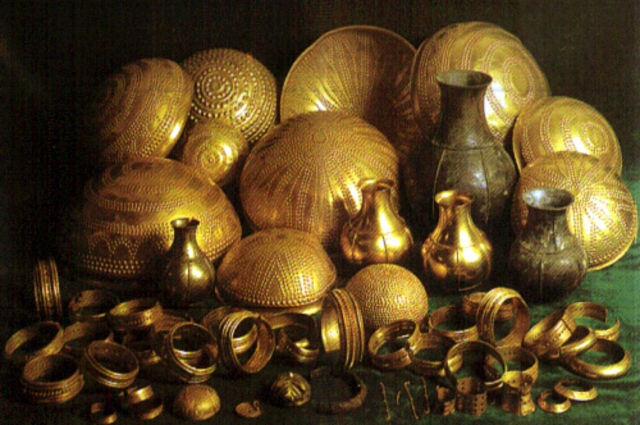One of the perks of writing a Taste of Torah article is the oppurtunity to look at the weekly Torah reading and find an element within it that resonates with readers, even today. In this week’s Torah reading, Parshat Vayakhel (Exodus 35:1-38:20), we are reminded of the obligation to keep Shabbat, and we learn about the building of the Tabernacle, as dictated by Moses to the nascent Jewish nation.
I know what you might be thinking: “You’re killin’ me, Jess. Is that all there is to it? Where is the drama, the fighting, the adultery? Where is the action?”
Well, that’s not all there is to it. This parshah actually teaches us an important lesson: the generosity of the Jewish people. When building the Tabernacle, the artisans were in need of precious metals and materials from the general population. Amazingly enough, the children of Israel donated so much of their belongings that Exodus 36:5-7 describes, “And they [artisans] spoke unto Moses, saying: ‘The people [the Jewish nation] bring much more than enough for the service of the work, which the Lord commanded to make. And Moses gave commandment, and they caused it to be proclaimed throughout the camp, saying: ‘Let neither man nor woman make any more work for the offering of the sanctuary.’ So the people were restrained from bringing. For the stuff they had was sufficient for all the work to make it, and too much.”
This portion of the parshah came as a shock to me. The metals donated to the “Building of the Tabernacle Fund” were not just any metals. These were metals that the Egyptians had confiscated from the Jews upon their enslavement, and that the Jewish people had reclaimed after divine redemption. For the children of Israel, gold and silver symbolized their newly restored wealth and dignity. Yet, they were willing to give them up — along with precious stones and expensive and rare fabrics and leathers — in a heartbeat for the sake of creating a Tabernacle. Not only that, they were willing to donate more than what was needed. So much so, that Moses had to command them to cease from donating further materials.
One lesson we can learn from this portion of the parshah is to be generous; no doubt about that. However, the key lesson of this Torah portion is to not lose sight of what is genuinely important. While the Jewish people appreciated their valuables, they understood that the contribution of their goods to the establishment of a Tabernacle was a necessary step in legitimizing their national and religious movement and paying tribute to the God that took them out of slavery.
This Shabbat, let us try and emulate our ancestors and get our priorities straight, too.
Shabbat Shalom!
—
This article is part of Ha’Am’s Friday Taste of Torah column. Each week, a different UCLA community member will contribute some words of Jewish wisdom in preparation for Shabbat.

